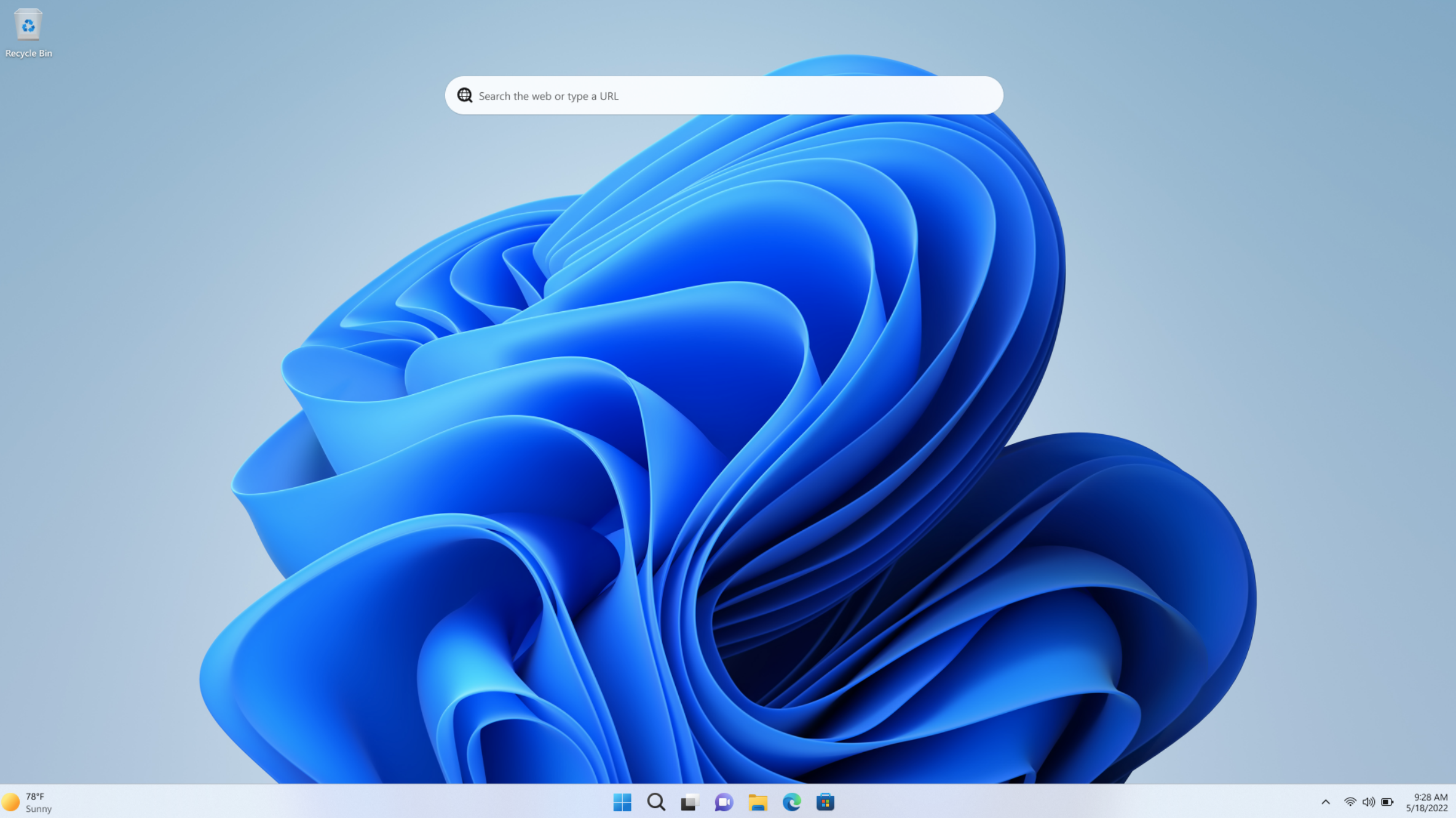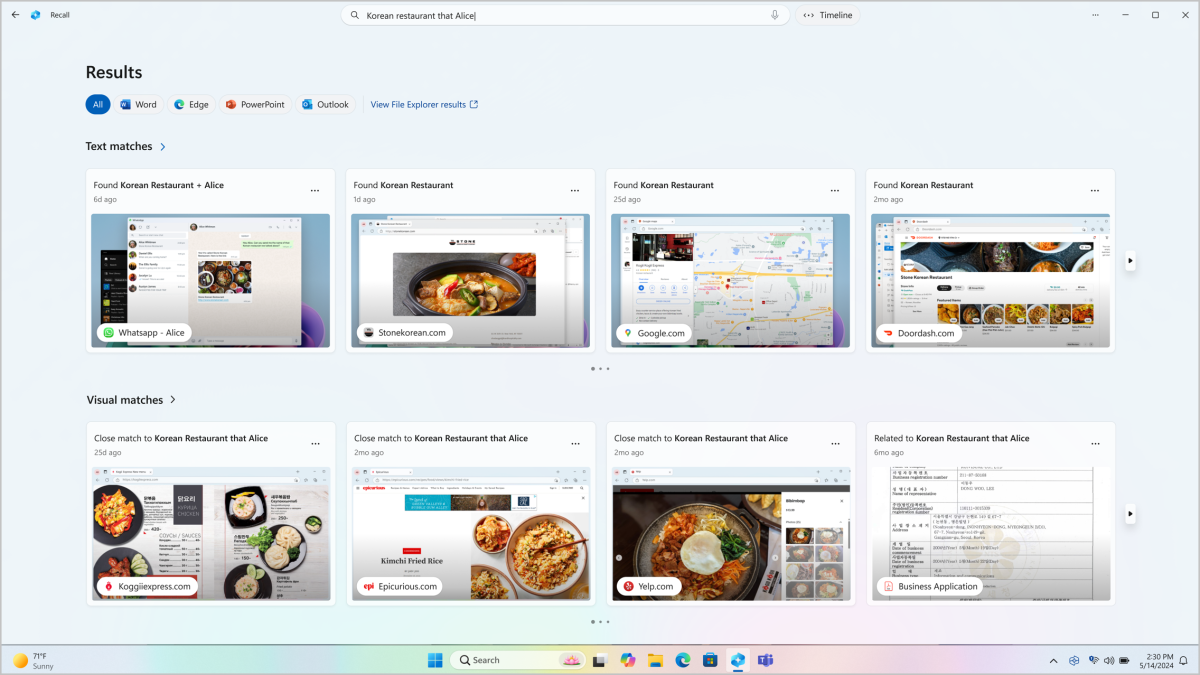Windows’ contentious Recall feature won’t be uninstallable, but it should be
Dig into your Settings in Windows 11, and you’ll find a list of your PC’s installed apps—including a couple related to core Windows features like Cortana and Copilot. If you dislike anything, you can nuke the offending software with a click.
But despite a brief moment of excitement on the internet, the same isn’t true for Microsoft Recall, the upcoming AI-infused Windows feature that will capture screenshots of everything you do on your PC. And in all likelihood, uninstalling Recall won’t be a possibility for a while after its launch (if ever).
It should be, though, given Microsoft’s attempts to associate Windows 11 with security and privacy.
Get windows 11 pro for cheap Windows 11 Pro Price When Reviewed:
199.99
Best Prices Today:
$59 at PCWorld Store – Win 11 Pro Upgrade Only |
$79.99 at PCWorld Software Store
Price When Reviewed:
199.99
Best Prices Today:
$59 at PCWorld Store – Win 11 Pro Upgrade Only |
$79.99 at PCWorld Software Store
Microsoft Recall is a sharp double-edged sword. The AI-driven search feature has the potential to dramatically lessen the burden of tracing your digital footprints—it instead can sift through the screenshots it took of the sites you visited, the information you researched, the files you worked on, and more. All in the hope of finding that one recipe for sourdough bread you forgot to bookmark, or which messaging app your spouse used to send over their flight info.
But the screenshots that Recall takes in order to do that processing also have the potential to reveal extreme detail about your life to others. It’s a potential gold mine for hackers and bad actors, and can also put individuals in abusive relationships at greater risk for harm.
Microsoft listened to the initial outcry about privacy and security concerns when Recall was first revealed back in May—it revised its original launch plans, promising to leave Recall off by default (rather than on) and to retool the style of encryption so that the screenshots were only accessible when needed for a search. The company also delayed wider release of the feature, keeping it to Windows Insiders only for continued testing.
 The idea of Microsoft Recall is cool, but not everyone will want it—and they shouldn’t be forced to still have remnants of it on their PCs.
The idea of Microsoft Recall is cool, but not everyone will want it—and they shouldn’t be forced to still have remnants of it on their PCs.
 The idea of Microsoft Recall is cool, but not everyone will want it—and they shouldn’t be forced to still have remnants of it on their PCs.
The idea of Microsoft Recall is cool, but not everyone will want it—and they shouldn’t be forced to still have remnants of it on their PCs.Microsoft
 The idea of Microsoft Recall is cool, but not everyone will want it—and they shouldn’t be forced to still have remnants of it on their PCs.
The idea of Microsoft Recall is cool, but not everyone will want it—and they shouldn’t be forced to still have remnants of it on their PCs.Microsoft
Microsoft
However, when a preview version of Windows 11 seemed to allow the option to uninstall Recall, Microsoft squashed the resulting buzz by saying it was an unintended bug. You can still disable Recall, but you can’t wholesale jettison it from your PC.
That’s disappointing, because in the most simple terms, a truly secure PC is one that keeps your data out of unwanted hands. And if Microsoft opens up the potential for that information to get served to others, it should also allow fully closing off that possibility. The threat of a PC breach is constant in today’s world—the number and scope of phishing attacks continue to increase. Microsoft Recall is a prospective liability, since features that aren’t removed can always be switched back on or otherwise exploited. The option to uninstall Recall would eliminate a potential vulnerability at its root.
In fairness, the line between future-forward technology and security is often thin. Tech companies can’t water down their products to the point of rendering them useless—but more thoughtful approaches would allow the futurists to see their science-fiction dreams come to life, while protecting those who need it from nefarious intent. The ability to uninstall a feature lets it exist as envisioned for those who want it.
But as it stands, the concerned public’s best hope for Microsoft Recall is it gets the same treatment as Cortana and Copilot, where it’s pushed so hard on every Windows user that no one bothers with it. Eventually, it’ll get put out to pasture, never to be seen again—a sad outcome, where neither the futurists nor the wary truly got what they wanted.
